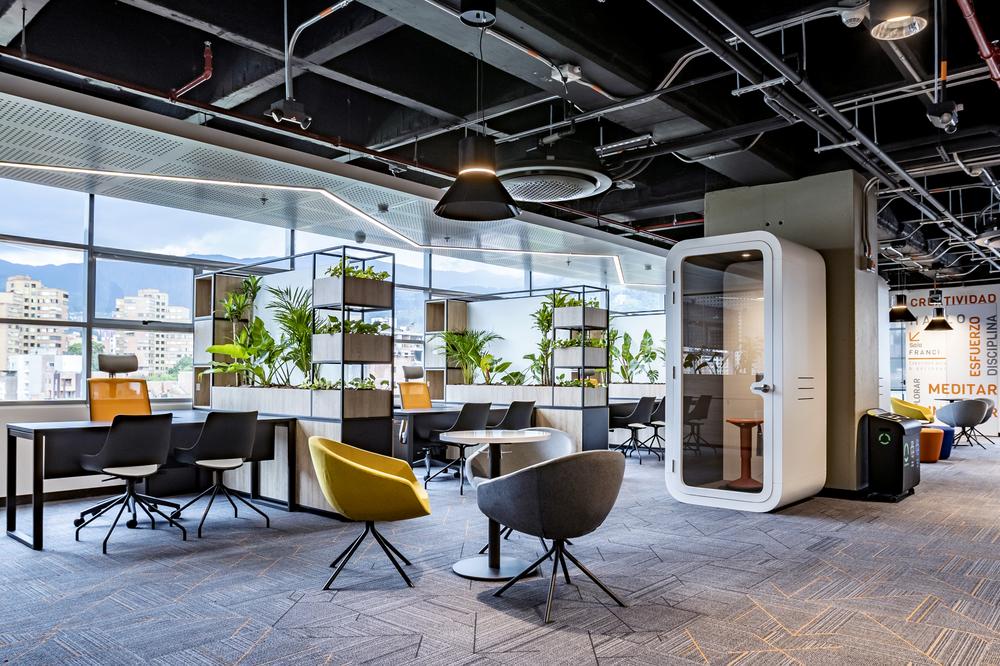
Design and technology have become deeply intertwined, reshaping the way we live, work, and connect with our environments. A home or workplace is no longer just a backdrop; it is an active participant in daily life, supporting efficiency, comfort, and personal expression. Building smarter spaces through creativity means combining innovation with function, resulting in places that feel intuitive, inspiring, and responsive to the people who use them.
The Shift Toward Smarter Living
Modern
living has evolved beyond simply having stylish furniture or well-chosen décor.
Today, it is about creating environments that work seamlessly for their
occupants. Smart technology enables this shift, giving us control over
lighting, climate, entertainment, and security in ways that were once
unimaginable. Creativity plays a vital role in how these systems are
integrated, ensuring they enhance daily routines rather than disrupt them.
For example, a family may want to transform
a living room into both a cinema-quality entertainment hub and a cozy gathering
space. Achieving that balance requires more than just equipment; it calls for
thoughtful design that blends technology with aesthetics. This is where
creative solutions make all the difference.
Creativity at the Core of Innovation
At the heart of smarter spaces is
creativity. Technology alone cannot build environments that feel engaging; it
is the human touch, an eye for design, attention to detail, and understanding
of personal needs, that brings systems to life. Creativity ensures that every
project is unique, tailored to the individual lifestyle or brand identity of
the client.
A
smart lighting system, for instance, can be designed to highlight
architectural features during the day and create a calming atmosphere at night.
Similarly, sound systems can be carefully positioned to provide immersive
experiences without overpowering the space. These examples highlight how
imagination and technical expertise must go hand in hand to build truly
intelligent environments.
Function Meets Beauty
The most successful spaces balance function
with beauty. It is not enough for a home to be technologically advanced; it
should also feel warm and inviting. Achieving this requires careful planning of
how devices are hidden or displayed, how wires are concealed, and how control
systems are made intuitive for the user.
Creativity also plays a role in designing
multipurpose spaces. For example, a dining room that doubles as a workspace, or
a home office that transforms into a guest room, demands flexibility and clever
integration of smart systems. When design is approached with both practicality
and imagination, spaces become not just functional but inspiring.
Personalization and Control
One of the key benefits of building smarter
spaces is personalization. No two clients are the same, and their needs often
extend far beyond basic automation. Creative thinking allows designers to
tailor systems to individual preferences, whether it is creating preset moods
for different times of day, integrating entertainment with security, or
combining energy efficiency with luxurious comfort.
Smarter spaces also empower people with
control. Whether adjusting settings through a touch panel, smartphone, or voice
command, users can engage with their environment in ways that feel natural and
convenient. The combination of creativity and technology ensures that this
control is intuitive, not overwhelming.
A Partner in Smarter Living
The process of transforming spaces into
something truly intelligent requires expertise, imagination, and a
forward-thinking approach. Companies like Design Innovation specialize in
bringing these elements together, ensuring that technology enhances rather than
complicates modern living. Their work demonstrates how creativity can be woven
into every stage of a project, from consultation to installation.
Looking Ahead
The future of design lies in smarter, more
connected spaces. As technology continues to advance, the opportunities for
creative integration will only grow. Homes and workplaces will become even more
adaptive, intuitive, and personalized. What will remain constant, however, is
the importance of creativity in making those spaces not only functional but
also meaningful.






